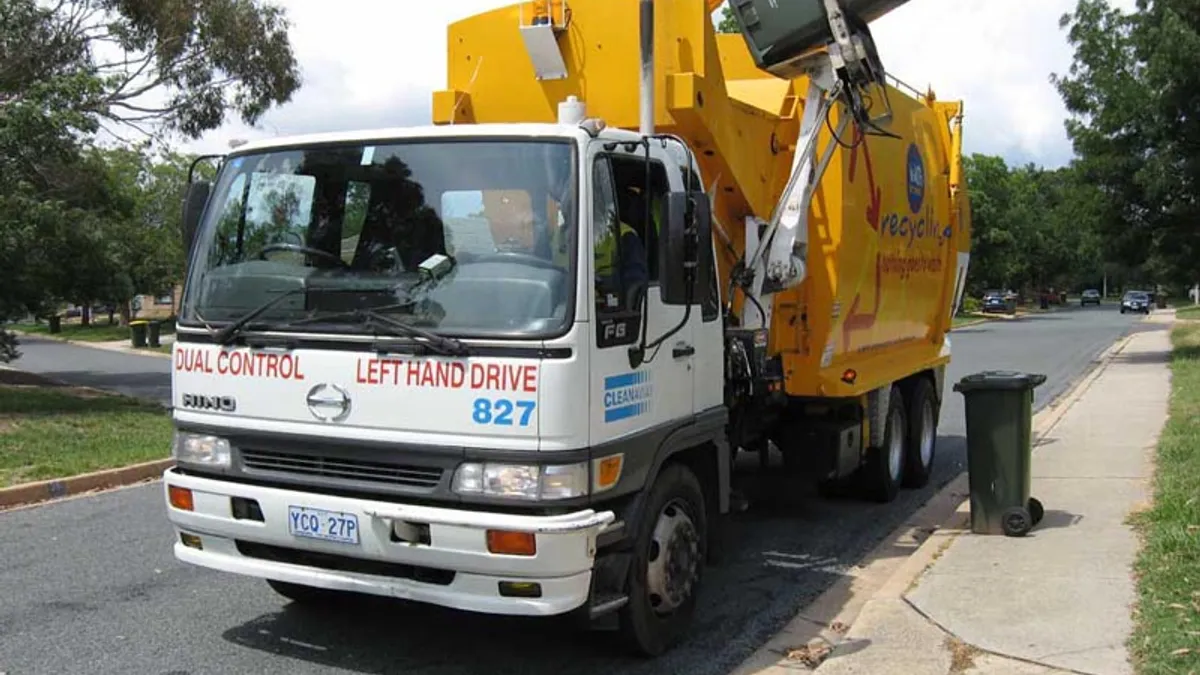Dive Brief:
- The Volvo Group is working on Robot-based Autonomous Refuse handling, or ROAR, to introduce a robot that can collect trash bins, take them to the refuse truck, and empty them with help from the truck's operating system — all under supervision of the driver, who will be able to avoid any heavy lifting.
- The joint venture includes Pennsylvania State University, Chalmers University of Technology and Mälardalen University in Sweden, and the waste recycling company Renova.
- Volvo Group says the purpose of ROAR is to demonstrate how smart machines can assist with a broad range of activities, including waste collection. "This project provides a way to stretch the imagination and test new concepts to shape transport solutions for tomorrow," said Per-Lage Götvall, project leader for the Volvo Group, in a press release.
Dive Insight:
At ROAR, things are moving right along. Sean Brennan, leader of the Penn State team, said the technology will be tested in June 2016 "on a vehicle developed by Renova."
Robotic trash collection is being tried in other places as well. The Town of Paradise in Newfoundland and Labrador, Canada, are testing a robo-garbage collection pilot program with a goal of cutting down on injuries and messes left behind from uncovered garbage. Also in the area, the City of Mount Pearl's garbage trucks were outfitted in 2012 with robotic arms that lift plastic trash carts off the ground and directly into the storage section of the trucks.
In addition to robotic garbage collection, Former Waste Management CIO Puneet Bhasin said that he can foresee a future of driverless trash trucks, calling the idea "fascinating" because of the impact it can have on labor dollars.
Robotic collection can help workers avoid heavy lifting and improve safety in what can be a hazardous industry where injuries and accidents — including fatalities — are all too common. While robotic collection may mean fewer industry workers, Paradise Mayor Dan Bobbett said he doesn't foresee any job losses .














